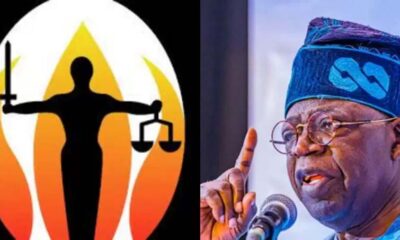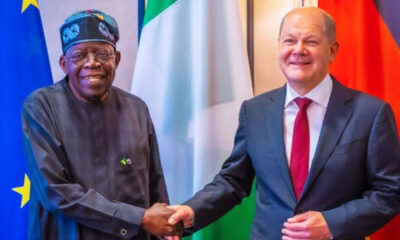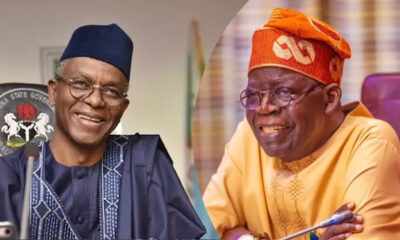News
China’s leader Xi shuns G-20, Tinubu, Biden attend India summit
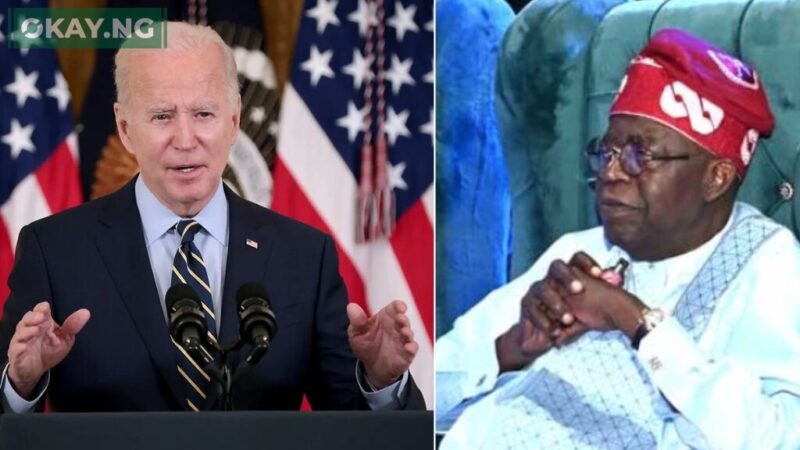
China’s leader Xi shuns G-20, Tinubu, Biden attend India summit
President Bola Tinubu on Monday travelled to New Delhi, India, to attend the G-20 Leaders’ Summit.
But China’s leader Xi Jinping will miss the important gathering of the world’s 20 top economies for the first time.
Xi’s absence from the summit is coming as tensions simmer between China and host country India over their disputed border and New Delhi’s growing ties with the United States.
Tinubu’s spokesman, Ajuri Ngelale, said this in a statement on the Nigeria’s President would be attending the summit in India on the special invitation of Indian Prime Minister, Narendra Modi.
“On the sidelines of the Summit, the President will participate in and deliver keynote addresses at both the Nigeria-India Presidential Roundtable and the Nigeria-India Business Conference,” the statement partly read.
The executive roundtable is expected to be attended by leading industrialists in the Indian private sector, Nigerian industrialists, as well as senior government officials from both countries.
“The President aims to leverage this platform to attract global capital and promote increased foreign direct investments in key labour-intensive sectors of Nigeria’s economy for job creation and revenue expansion.
“Moreover, he will use this opportunity to highlight Nigeria’s attractiveness as an investment destination, specifically outlining his cross-sectoral reform plan as encapsulated by the Renewed Hope Agenda,” Ngelale said.
At the G20 Summit, the Nigerian leader is expected to share Nigeria’s perspective on the theme, ‘One Earth-One Family-One Future’ with focus on global unity required to address the challenges facing humanity and the planet.
“While Nigeria’s membership of the G-20 is desirable, the government has embarked on wide-ranging consultations with a view to ascertaining the benefits and risks of membership.
“Once consultations are concluded, the government will decide whether or not to apply to join as appropriate. The participation of President Tinubu at the G-20 Summit in India is, in part, in furtherance of this objective.”
In China, questions about Xi’s attendance at the meeting were first raised last week when Reuters reported the Chinese leader was likely to miss it, citing two unnamed Indian diplomats.
At a regular news conference Monday, China’s Foreign Ministry said Li would attend the summit on Saturday and Sunday, without mentioning Xi.
Mao Ning, a spokesperson for the ministry, sidestepped a question from a reporter about the reason for Xi’s non-attendance – which would be the first time China top’s leader has missed a G20 Summit.
“The Group of 20 is a major forum for international economic cooperation, and China has always attached great importance to and actively participated in relevant activities,” Mao said, without addressing the substance of the question.
Even during the Covid pandemic, Xi attended the meetings in 2020 and 2021 by video link.
Beijing’s announcement has dashed hopes that Xi and US President Joe Biden might meet at the summit, as the two superpowers seek to stabilize their rocky relations.
Preempting confirmation from Beijing, Biden on Sunday publicly expressed disappointment that he would not see Xi in New Delhi.
“I am disappointed – but I’m going to get to see him,” Biden told reporters on Sunday.
Biden had previously told CNN he would be meeting with Xi in “the fall.”
The two leaders last spoke in person in November 2022 on the sidelines of the G20 Summit in Bali, where they pledged to restore channels of communication in an effort to prevent rising tensions from spilling into open conflict. That meeting is the only time the two have met in person since Biden took office.
Four US cabinet officials have visited Beijing in recent months, after a suspected Chinese spy balloon derailed a fledgling effort at rapprochement earlier in the year.
Xi’s absence from the G20 summit also means he will not have a formal bilateral meeting with Indian Prime Minister Modi, as the two nuclear-powered neighbours remain at loggerheads over their contested border.
Xi and Modi agreed to “intensify efforts” to deescalate tensions at the border last month on the sidelines of the BRICS summit in South Africa – which was seen as a step toward mending their fraught relationship.
But tensions rose again last week when India lodged a “strong protest” against China’s newly published national map, which it said included the Indian state of Arunachal Pradesh and the disputed Aksai-Chin plateau in Chinese territory.
The disputed border has been a source of friction between New Delhi and Beijing, with the agitation spilling into a 1962 war that ended in a Chinese victory.
Tensions rose again in 2020 after a deadly brawl in the Galwan Valley resulted in the deaths of 20 Indian soldiers and four Chinese.
News
Tinubu to Governors: State Police Must Begin Now
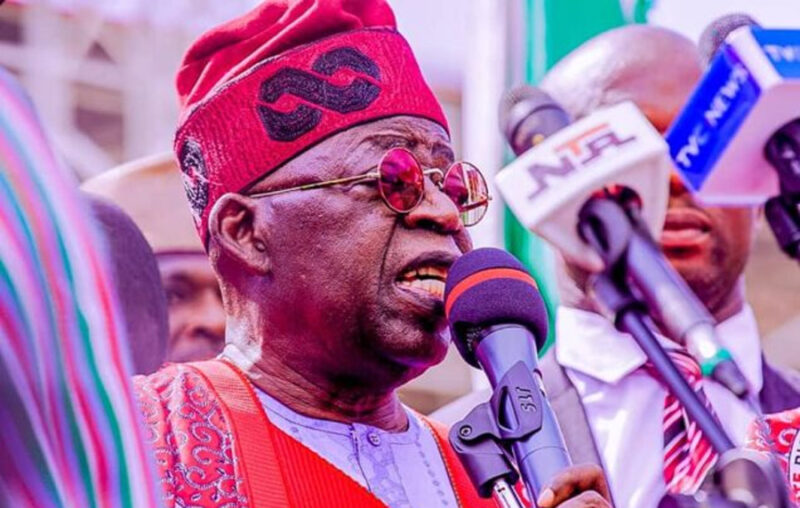
Tinubu to Governors: State Police Must Begin Now
President Bola Ahmed Tinubu has declared that the establishment of state police in Nigeria can no longer be delayed, stressing that urgent action is required to tackle rising insecurity, banditry, terrorism and kidnapping across the country.
The President spoke on Monday night after breaking the Ramadan fast (Iftar) with state governors at the Presidential Villa, where he said all levels of government must work together to reclaim ungoverned spaces being exploited by criminal groups.
“What I promised you will not be postponed. We will establish state police to combat insecurity. Start looking around you,” Tinubu told the governors, emphasising that Nigeria’s security challenges had reached a point where decentralised policing could no longer be ignored.
He reminded the governors that they had all, through deliberations at the National Economic Council (NEC), agreed on the need to create state police as a strategy to curb insecurity and protect communities. According to him, the consensus underscored the urgency of addressing widespread criminality that has disrupted livelihoods and instilled fear across many parts of the country.
Tinubu, however, acknowledged that critical issues such as funding, command structure, oversight, accountability and coordination with the Nigeria Police Force and other security agencies were still being worked out. He noted that these modalities must be carefully designed to ensure professionalism, prevent abuse and guarantee effective collaboration.
The President also urged governors to intensify grassroots development, saying neglect, unemployment and poverty at the local government level often fuel criminal activities. He appealed to state leaders to embrace inclusiveness and ensure that development opportunities reached the most vulnerable.
READ ALSO:
- Ten Killed in Coordinated Bandit Attacks in Plateau
- Police Dislodge Bandit Camps, Arrest Gunrunners in Kaduna
- BREAKING: Panic at MMIA as Fire Breaks Out at Old Terminal
- ADC Leadership Clash: Oyegun Bars Owie from Caucus Meeting in Edo
“Be all-encompassing. Let’s spread development opportunities to the grassroots and embrace the downtrodden, the young ones and all our supporters,” he said.
Describing the coincidence of the Muslim Ramadan fast and the Christian Lenten season as symbolic, Tinubu said the period reflected shared values of discipline, sacrifice and unity, urging Nigerians to continue to pray together and support one another.
Addressing internal political tensions, the President advised members of his party to exercise tolerance during ongoing congresses, stressing that unity and harmony were essential for national stability.
“Tolerate everybody. Let the young ones breathe. Build structures anchored on unity, harmony and sacrifice,” he said.
Acknowledging that criticisms and commendations would continue to trail his administration, Tinubu expressed optimism about Nigeria’s trajectory, saying the country was emerging from economic uncertainty.
“We are out of the dark tunnel of uncertainty. The economy is picking up. Let’s help those who are unemployed,” he added.
Responding on behalf of the governors, Imo State Governor Hope Uzodimma described the gathering as a symbol of religious harmony, unity and partnership between the federal and state governments. He praised the President for fostering political stability and strengthening collaboration with governors, pledging continued support for ongoing reforms.
The dinner was attended by Vice President Kashim Shettima, members of the Federal Executive Council, several state governors and senior government officials, including Chief of Staff to the President, Femi Gbajabiamila.
Tinubu to Governors: State Police Must Begin Now
News
U.S. Court Orders ICE to Release Nigerian Detained Since 2012
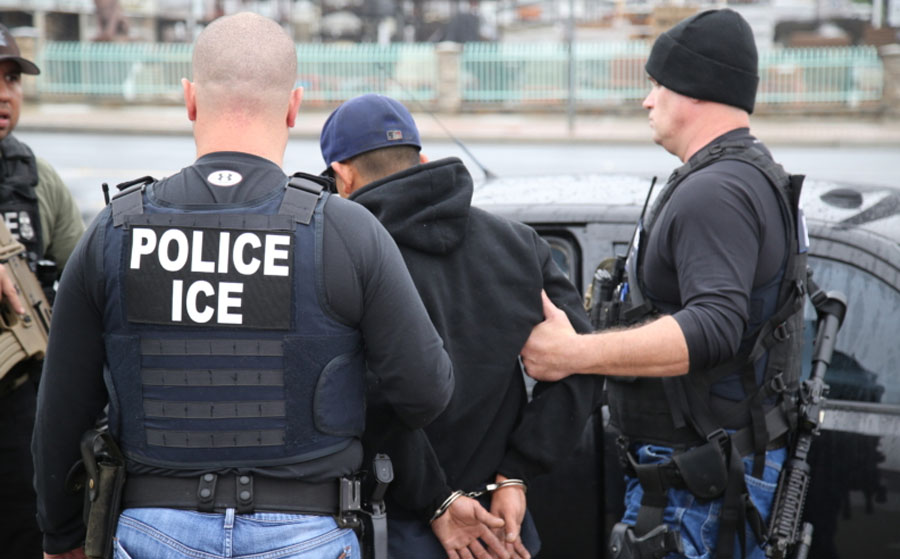
U.S. Court Orders ICE to Release Nigerian Detained Since 2012
A U.S. District Court in Minnesota has ordered U.S. Immigration and Customs Enforcement (ICE) to release Michael Opeoluwa Egbele, a Nigerian national who entered the United States illegally in 2003 and had been held under immigration detention since his arrest in 2012. The court ruled that his detention was unlawful due to prolonged enforcement delays and lack of proper legal notice.
Senior U.S. District Judge John M. Gerrard delivered the ruling on February 18, 2026, giving ICE until February 20 to free Egbele and file a status report confirming his release. The judge highlighted that ICE had no legal grounds to hold him, noting the unique circumstances of his long-standing supervision arrangement.
Egbele’s legal troubles began in 2012 after his arrest on a drug-related offence, which triggered deportation proceedings. At the time, he applied for asylum and requested that his removal be withheld, but his claim was denied, and he was issued a final deportation order in July 2012. However, ICE did not enforce the removal, and Egbele did not appeal.
Instead, he was released on supervision in December 2012, under which he was required to report regularly to ICE. This arrangement continued for more than a decade until January 2026, when ICE detained him during a routine check-in.
READ ALSO:
- Anambra Govt Shuts NASPA Market Over Sit‑At‑Home Defiance
- 2027: Bashir Ahmad Rules Out Kwankwaso as Peter Obi’s Running Mate
- EFCC Nabs 20, Seizes ₦17m Over Vote Buying in FCT Elections
Egbele argued in court that he was never notified of any revocation of his pre-existing order of supervision and was not given a legal explanation for his detention. ICE claimed the supervision was revoked partly because Egbele failed to obtain a travel document to Nigeria, as required under his supervision.
Following his arrest, Egbele was unable to contact his wife, a U.S. citizen, or his lawyer for several days. He was initially held at an ICE facility in Montana and later transferred to a detention center in New Mexico, with his location undisclosed for days.
The federal government argued that the Minnesota court lacked jurisdiction because Egbele was held outside the state, but the judge rejected this, stating that ICE could not unilaterally terminate a decades-long supervisory arrangement without due process. The court emphasized that Egbele’s right to proper notice and legal protections had been violated.
Judge Gerrard ordered that Egbele be released immediately under the conditions of his original supervision and directed ICE to file a compliance report by February 20, 2026.
Legal experts say the ruling highlights broader concerns about long-term immigration detention, due process rights, and the enforcement of removal orders in the U.S., particularly when individuals have established long-term ties or arrangements with immigration authorities.
U.S. Court Orders ICE to Release Nigerian Detained Since 2012
News
Nigeria Wins $6.2 Million Arbitration Against UK Tech Firm

Nigeria Wins $6.2 Million Arbitration Against UK Tech Firm
Nigeria has scored a landmark legal victory, securing $6.2 million in an international arbitration against UK-based technology firm European Dynamics UK Ltd over a disputed national electronic government procurement (e-GP) contract. The ruling reinforces Nigeria’s commitment to performance-based government contracts and protecting public resources.
The arbitration decision, delivered on February 3, 2026, by sole arbitrator Funmi Roberts at the International Centre for Arbitration and Mediation, dismissed all claims by the UK contractor. The award is final and not subject to appeal, according to the Attorney-General of the Federation, Lateef Fagbemi, SAN.
The dispute originated from a Bureau of Public Procurement (BPP) contract to design, develop, and implement a national e-procurement platform, supported by the World Bank to enhance transparency and efficiency in federal procurement.
READ ALSO:
- US Adds 19 More Nigerians to ‘Worst of the Worst’ Deportation List
- Gunmen Storm Gbugbu in Kwara, Residents Flee as Panic Spreads
- FG to Launch Monthly Revenue Transparency Dashboards to Improve Fiscal Accountability
European Dynamics had claimed over $6.2 million, including:
- $2.4 million for alleged milestone completions
- $3 million in general damages
- $800,000 in settlement costs
However, the tribunal ruled the claims lacked merit, citing deficiencies during User Acceptance Testing (UAT) such as functional gaps and performance errors, which the contractor was required to fix at no additional cost.
The BPP insisted payments must be strictly tied to verified deliverables, rejecting earlier efforts at an out-of-court settlement. The tribunal upheld this stance, emphasizing that software development and customization contracts are performance-based and must meet technical and statutory standards before payments are made.
Nigeria’s legal team, led by Johnson & Wilner LLP with Basil Udotai heading the arbitration, achieved what the BPP Director-General, Adebowale Adedokun, described as a historic victory. European Dynamics had previously won arbitration cases in other African countries but lost against Nigeria, signaling a shift in how government procurement disputes are handled.
Attorney-General Fagbemi stated that this ruling sends a clear message that Nigeria will no longer be taken for granted, demonstrating strengthened legal and technical capacity in managing complex international contracts. Experts suggest the outcome will influence future e-procurement reforms to ensure compliance, accountability, and efficient management of public contracts.
Nigeria Wins $6.2 Million Arbitration Against UK Tech Firm
-

 Business2 days ago
Business2 days agoDangote Opens Refinery Investment to Nigerians With Public Share Sale Plans
-

 Education2 days ago
Education2 days agoUTME: JAMB Clarifies Position on Hijab During Biometric Capture
-

 Politics2 days ago
Politics2 days agoTinubu Hails Wike as APC Dominates 2026 FCT Area Council Elections
-

 Entertainment2 days ago
Entertainment2 days agoRegina Daniels Takes Delivery of ₦150m 2026 GAC Trumpchi M8 SUV
-

 Politics3 days ago
Politics3 days agoADC Defeats APC to Win First Polling Unit in FCT Area Council Election
-

 Politics2 days ago
Politics2 days agoFCT Council polls: APC Wins Four Chairmanship Seats as PDP Takes Gwagwalada
-
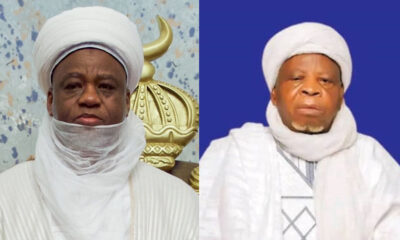
 News2 days ago
News2 days agoYoruba Muslim Group Dismisses Viral Ramadan Date Claim, Reaffirms Sultan of Sokoto’s Authority
-

 Politics2 days ago
Politics2 days agoOpposition Weakens as Another Governor Eyes APC Move





